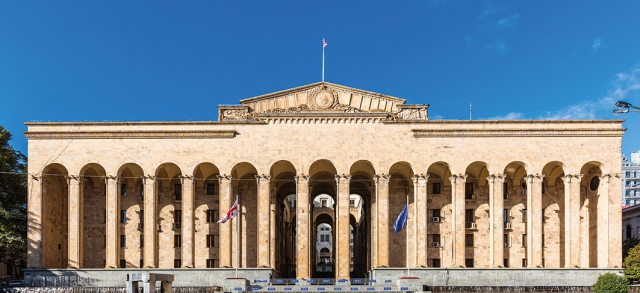The Georgian Elite & the New State
Any single powerful leader Georgia has, throughout the country’s almost 30 years of independence since the break-up of the Soviet Union, has always been seen as the ultimate decision maker.
Perhaps it is one of the features of Georgian political thought that a leader wields all the influence over the economic and political life of the state.
True, a single powerful leader is an important factor, but also needing to be considered are the various groups which constitute the government and various elite which uphold those politicians and technocrats from behind.
Is there a Georgian elite? Are these the groups which ultimately influence all the political, economic and cultural life in the country? And more specifically: what is an elite?
Classically, an elite is a group of people very successful in their respective fields. They are bound by a certain set of ideals, mutual interests, etc. What is more important, though, is how divided or united those various elite are. Divided, unified by one ideology, or coordinated, are three categories of elite configuration.
The Georgian elite, which there certainly are, represent an extremely divided front. Political, cultural as well as military circles have not yet agreed on most basic ideas which would constitute Georgia's state interests in foreign affairs as well as internal development strategies. Indeed, coordination between the elite groups is so necessary that without it, it will be extremely difficult to withstand foreign pressure. Indeed Russia's success at limiting Georgia's ability to build much more successful state institutions could be blamed on deep divisions among the elite.
Divisions between the Georgian elite, however, do not mean that the slow process of unification around a certain set of ideas (national sovereignty, anti-Russian, the need for reforms, etc.) is not taking place. On the contrary, various developments are being seen which indicate that since the end of the Soviet regime, there have been some positive changes where the Georgian elite are increasingly associated with a certain set of ideas.
Still, the process is slow, which limits the speedy development of Georgia's economy, education system, etc. Moreover, it is still unclear what the criteria is for inclusion into the Georgian elite. There is no code of behavior or required achievement (as in the West) which would usher a new individual into the elite. Membership is based more on personal relations between various powerful individuals. However, slowly but steadily meritorious tendencies are taking the upper hand where individual talents are a primary factor in becoming an 'elitist' - the process Western democracies fought for centuries to achieve.
There is also an interesting development which will be seen in Georgia from late 2020 to early 2030: the change of the elites' age. In the 1990s, political and economic decision makers were mostly born in the 1950s or before. The Soviet upbringing still made a difference. There was a clear tendency towards one-party (man) rule. A radical shift among the ruling elite was seen in the post-2003 period when a much younger political class was established, mostly born in the 1970s and even 1980s. This change was primarily reflected in the quest for internal reform. However, there has still been a tendency where a certain political group sought to acquire ultimate influence over every aspect of economic, political and cultural life.
What we are likely to see in Georgia in the coming decade is the appearance of major political and economic decision makers born in the late 1980s-early 1990s. This will have a major impact on how the country will be run. It is likely that more attention will be paid to establishing a more effective administration, improving the level of education, economy, and the military. The new Georgian elite, predominantly born in a post-Soviet country, will also be more amenable to public demands.
Sure, this progress will not be reached overnight, perhaps only in the late 2030s will there be a distinct break with the past elite groups and their modes of governance, the 2030s- when an entirely new generation will be in place to rule the country.
By Emil Avdaliani
Image source: wikipedia












